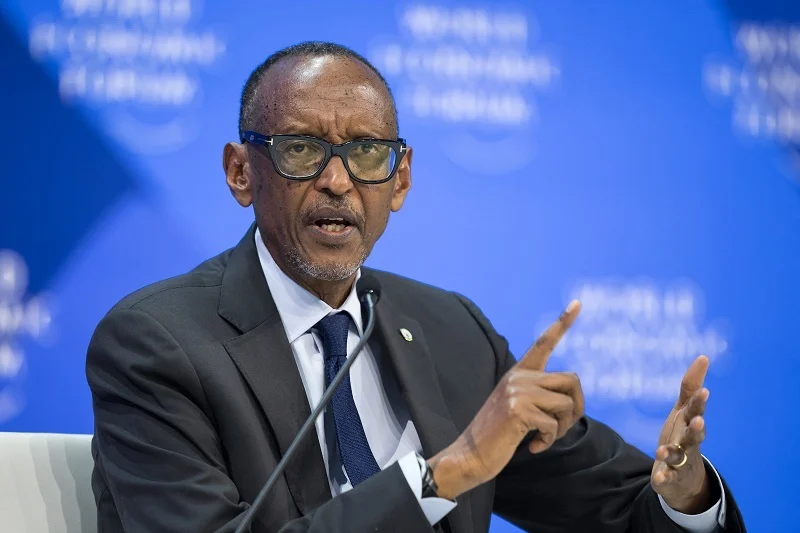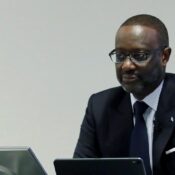
Politicized aid: Rwandans call on Germany to address the DR Congo problem with a fact-based strategy
German citizens who are Rwandan have denounced the German government’s decision to halt new development aid to Rwanda.
Svenja Schulze, Germany’s Federal Minister for Economic Cooperation and Development, received a statement on March 12 from the Rwandan diaspora denouncing the action as “unjust and counterproductive, as it politicizes development aid and unfairly attributes responsibility for the conflict in eastern DR Congo to Rwanda without factual basis.”
The community pointed out that the origins of the violence in eastern Democratic Republic of the Congo may be found in colonial history, specifically in the Berlin Conference of 1884, where European nations, especially Germany, set borders arbitrarily, dividing people.
“The people were divided by the artificial borders imposed by colonial rule, leaving many Rwandophones in what is now the Democratic Republic of the Congo.”
They pointed out that discrimination against Rwandophones in the Democratic Republic of the Congo was made possible by identity-based classifications that exacerbated ethnic differences during German and Belgian colonial administration.
The Rwandan community also brought up the international community’s inability to disarm the 1994 Genocide perpetrators against the Tutsi, who fled to eastern Democratic Republic of the Congo and subsequently established the FDLR, a terrorist organization made up of members of the 1994 Genocide’s masterminds.
“Openly promote rhetoric that calls for genocide”
Along with denouncing the growing ethnic violence against Rwandophones in eastern Democratic Republic of the Congo, their statement mentioned alarming events such as cannibalism and the mass murders of Goma and Bukavu in 2023 and 2024.
The Congolese military and administration openly support rhetoric that calls for genocide. Ethnic violence has been exacerbated by the outspoken calls for the eradication of Rwandophones by a number of prominent DR Congolese leaders. In an effort to eradicate Rwandophones and Tutsis, the Kinshasa administration went so far as to establish the Wazalendo, an armed ethnic militia.
The diaspora community brought up Alice Wairimu Nderitu’s 2022 visit, during which she warned of the possibility of genocide against Rwandophones in eastern Democratic Republic of the Congo. Nderitu was the UN Special Adviser on the Prevention of Genocide at the time. Nderitu has underlined the importance of preventing genocide by acting before violence is about to break out.
Nderitu expressed her grave concern on November 30, 2022, after her official visit to the Democratic Republic of the Congo, regarding the rise of violence in the Great Lakes Region, the site of a genocide (the 1994 Rwandan Genocide against the Tutsi). According to her, “the current violence is a warning sign of societal fragility and proof of the enduring presence of the conditions that allowed long-standing hatred and violence to erupt into a genocide in the past.”
Her visit came after her office conducted a technical-level mission that determined that the DR Congo had all of the indicators and triggers listed in the UN Framework of Analysis for Atrocity Crimes: the spread of hate speech and the lack of independent mechanisms to combat it; identity politicization; the growth of local militias and other armed groups throughout the nation; rampant and systematic attacks, including sexual violence, against the Banyamulenge, particularly, on the basis of their ethnicity and perceived allegiance to neighboring countries; and intergroup tensions.
She clarified that a large number of those participating in the 1994 Rwandan Genocide against the Tutsi fled to eastern DR Congo, where they formed armed groups like the FDLR, “which is still active,” and that this is the main cause of the ongoing instability in the region.
“The failure to bring non-state armed actors to book is the consequence we now see,” she said, referring to the emergence of new armed groups in reaction to the existence of this one. Nderitu even went so far as to say that taking care of the root causes of the violence and applying lessons learned from the past would be necessary to resolve the current crisis in eastern Democratic Republic of the Congo.
She asserted that “our collective commitment to remember past atrocities constitutes an obligation to prevent reoccurrence.”
The AFC/M23 rebellion in eastern DR Congo, which has vowed to eradicate various vices that are pervasive throughout the vast country, including nepotism, tribalism, corruption, and genocide ideology, continues to condemn Kinshasa’s ceaseless targeting and murder of unarmed Banyamulenge civilians in Minembwe, Uvira, and the surrounding areas in South Kivu Province.
In South Kivu Province, the Congolese army coalition’s drones, Sukhoi fighter jets, and mortars have recently targeted and destroyed communities that are home to unarmed Banyamulenge residents.
Strive to stop Rwandophone persecution in Kinshasa.
Rwanda’s security issues, especially the cooperation of the Congolese army (FARDC) and FDLR in operations against their country, were also brought up by the Rwandan community in Germany.
“The DR Congo’s security threats, including the direct cooperation between the FDLR and FARDC, have been repeatedly brought to the attention of the international community by Rwanda.”
The German government was asked by the community to take a more fact-based and impartial stance. For not disarming the homicidal militia and carrying with peace accords, they called on Germany to hold Kinshasa accountable. Concerning the Congolese government’s inability to adequately control hundreds of armed groups that still cause instability in the area, they also demanded accountability.
The group also called on the German government to urge that Kinshasa stop persecuting Rwandophones and defend their right to citizenship.
To guarantee that Rwanda’s worries regarding the FDLR dangers are taken into consideration, they called on the German government to “support regional security mechanisms.”
Along with denouncing the European mercenaries’ involvement in the Democratic Republic of the Congo, they emphasized the need for European actors to refrain from escalating violence and urged positive dialogue with regional authorities in order to develop long-term solutions rather than using coercive and biased tactics.
According to the statement, Germany should “avoid politicizing development cooperation, of which Rwanda has proven to be a very effective user.”
“This undercuts the German and Rwandan governments’ long-standing attempts to reduce poverty and bring prosperity to the Rwandan people.”
All Categories
Recent Posts
Tags
+13162306000
zoneyetu@yahoo.com



